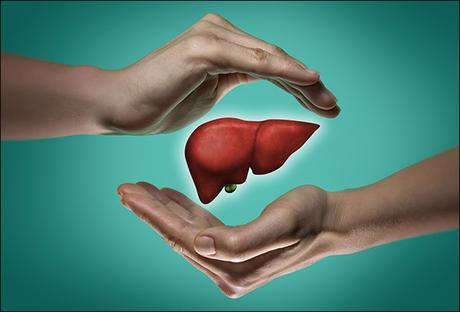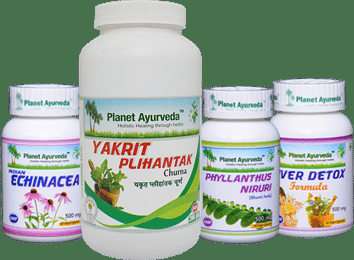Abstract
There are many congenital and inherited disorders which are becoming common in children as the world is growing. With technology our life was supposed to become easy but it is becoming more of a difficulty instead of the agenda "Difficulties being solved". The children are even born with diseases now and diseases like whose solution is not written anywhere, is not described anywhere. In this article we are going to discuss one of such conditions whose name is Crigler Najjar Syndrome (Type 1). The condition is an inherited disorder and is related to bilirubin. The article mentions all about Crigler Najjar Syndrome (Type 1) and how its management is possible with Ayurvedic formulations.

Introduction
Crigler Najjar Syndrome (Type 1), as mentioned earlier is an inherited disorder in which the bilirubin is not broken down. In this condition the patient basically lacks the enzyme that normally converts the bilirubin into a form that can be easily removed from the body through stools and urine. But without this enzyme the bilirubin build up is obvious and thus it results in damage to several organs, mostly the brain. The condition of severe jaundice appears. The Crigler Najjar Syndrome (Type 1) is caused by the mutation in a certain set of genes called UGT1A1 and it was inherited. The condition is understood as an autosomal recessive manner.
Causes of Crigler Najjar Syndrome (Type 1)
The cause of crigler- Najjar syndrome is a result of gene mutation. This gene is responsible for providing instructions for making Bilirubin uridine diphosphate glucuronosyltransferase (Bilirubin UGT) enzyme. This enzyme is primarily found in liver cells and is necessary for the removal of bilirubin from the body.
If understood from the view point of Ayurveda, then this condition is simply the result of bijadushti i the worm by the tridosha. The aggravation of doshas may be due to external factors like emotional stress from the side of the family or husband or may be due to internal factors like wrong eating habits etc.
Symptoms of Crigler Najjar Syndrome (Type 1)
The symptoms related to crigler najjar syndrome type 1 are as follows:
- The symptoms usually vary from patient to patient and usually appear just after the birth.
- Affected child present with severe and persisting yellowing of skin along with mucous membranes and sclera (white portion of eyes)
- The infants are also at the risk of developing kernicterus which is commonly known as bilirubin encephalopathy. All of this happens within the first month of life.
- The kernicterus is a potentially life threatening condition, which is related to the neurological system. In this condition, toxic levels of bilirubin start accumulating in the brain and cause irreversible damage to the central nervous system.
- There are some early signs of kernicterus which may include lack of energy or lethargy, vomiting along with fever or not taking satisfactory feed.
- Absence of certain reflexes like more reflex
- Mild to severe pain in the muscles along with spasms
- Spasms causing head and heels to bend or they are arched backward.
- The body bows forward which is called as opisthotonus
- Uncontrolled and involuntary movement of muscles
- Spasticity is also present
- The affected infant may suck or nurse very weekly
- Suddenly they develop a high pitched cry and also exhibit diminished muscle tone.
- This also results in abnormal floppiness.
- Kernicterus can also result in milder variety of symptoms like clumsiness, difficulty with motor skills along with underdevelopment of enamel of teeth. In Addition severe things like hearing loss, and problems with sensory perception are also present.
- Moreover, convulsions, slow and continuous involuntary, writhing movements are also seen. These are generally observed in arms and legs. Sometimes, the entire body is involved.
- When the condition appears in childhood then symptoms like fatigue, abdominal pain related to biliary stones can also be there.
- The acute stage of illness may include symptoms like diarrhoea, vomiting, fever, confusion, slurred speech, difficulty in swallowing and sometimes change in gait, staggering and falling frequently. Same things can also continue with on and off episodes of seizures.
Diagnosis of Crigler Najjar Syndrome (Type 1)
- The diagnosis is suspected within the first few days of the life which is with persistent jaundice. The diagnosis is done on the basis of clinical evaluation, characteristic findings, after detailed history of the patient.
- Blood tests reveal abnormally high levels of unconjugated bilirubin. This situation is generally associated with degeneration of high levels of RBC but in this situation it is not linked to hemolysis.
- Moreover, analysis of bile will reveal no detectable glucuronides and urine analysis will show lack of bilirubin.
Treatment of Crigler Najjar Syndrome (Type 1)
- The mainstay treatment of Crigler najjar includes the following:
- Aggressive phototherapy
- Immunosuppressant medication
- Liver transplantation
- Certain multivitamins like vitamin E, Vitamin C, Coenzyme Q and creatinine.
- If the condition is aggressive, intravenous fluid hydration is done along with management of elevated glucose along with administration of albumin and even plasma exchange is also done.
Ayurvedic View Point of Crigler Najjar Syndrome (Type 1)
As mentioned before the cause in this situation is the beejadushti from the Ayurvedic view point. The symptoms in the body are arising due to the high levels of pitta in the body and it can be well managed with the Ayurvedic herbs. Bile here is considered as pitta and when it is not converted into the form which can be easily excreted out of the body then it starts accumulating in the body and thus causes various types of problems. To balance this pitta it is really important to maintain the healthy functioning of the liver here. Liver is termed as yakrit in Ayurveda and To maintain the health of Yakrit there are many things which can be done in Ayurveda. Certain formulations can be given for the shaman of pitta and some others are given to enhance the working of the liver.
Herbal Formulations for Crigler Najjar Syndrome (Type 1)
Planet Ayurveda is a herbal manufacturing company, which prepares effective Ayurvedic products. The products are vegan and do not contain any kind of additives, adulterants, dyes, preservatives, flavour enhancers and other chemicals. The products are prepared using effective Ayurvedic herbs which are effective in managing many conditions efficiently. The products by Planet Ayurveda in this condition can be of great help and helps in giving fruitful results.
They enhance the body's metabolism and also work as an immune modulator. The diseases related to the liver can also be very well managed using Ayurvedic formulation. This simply means that they have a great effect on the working of the liver. Formulation offered by Planet Ayurveda in Crigler Najjar Syndrome (Type 1) are as follows:
- Yakrit Plihantak Churna
- Phyllanthus Niruri
- Echinacea Capsules
- Liver Detox Capsules


Product's Description
1. Yakrit Plihantak Churna
Yakrit plihantak churna is a classical Ayurvedic formulation which has many beneficial herbs like Bhumi Amla ( Phyllanthus niruri), Katuki ( Picrorhiza kurroa) Makoy ( Solanum indicum) Punarnava ( Boerhavia diffusa) Kalmegh ( Andrographis paniculata) Kaasni ( Cichorium intybus) Sharpunkha ( Tephrosia purpurea) and Bhringraj ( Eclipta alba). These herbs are potent in enhancing liver functioning, removing accumulated fat in the liver and also are effective in showing liver protecting effects. This churna is having very brilliant results not only in enhancement of liver functioning and also is effective in getting rid of the obstruction in the bile duct which is the main reason of biliary atresia.
Dosage: Half tsp daily with lukewarm water after meals.
2. Phyllanthus Niruri
Phyllanthus niruri capsules are the standardised extract of Bhumi amla ( Phyllanthus Niruri). It is a very great formulation that is having its direct effect on the liver. It helps in enhancement of liver functioning and gives really wonderful results. In this condition it helps by its effect on the liver and also helps in balancing the levels of the bilirubin in the body. The formulation also helps in the body's detoxification and has a soothing effect on the entire body. As it controls the level of bilirubin in the body it helps in protecting nerves and brain from harmful effects of high bilirubin.
Dosage: One capsule twice daily after meals.
3. Echinacea Capsules
Echinacea capsules also have standardised extract of kalmegh ( Andrographis paniculata). Kalmegh is known as a kind of bitters and is a very great pitta dosha pacifier. Kalmegh is known for its great effects on the liver and supports healthy functioning of the liver. Due to its bitter taste the herb is really well known for its effect on kapha dosha as well. Echinacea Capsules also help in liver detoxification and help in excreting out the bile from the body as well. The formulation is really great for managing this situation and tends to give nice results.
Dosage: One capsule twice daily after meals.
4. Liver Detox Capsules
Liver detox formula has herbs like Kutki ( Picrorhiza kurroa), Punarnava ( Boerhavia diffusa), Kalmegh ( Andrographis paniculata), Haritaki ( Terminalia chebula), Kasni ( Cichorium intybus) and many others. The liver detox formula helps in clearing the toxins that are accumulated in the liver and also may help by enhancing the liver enzymes secretion. It also helps in balancing the pitta dosha thus leading to proper digestion. It is a very effective formulation which helps in treating various ailments. Liver detox formula has herbs like kalmegh that have liver protective effect too and also help in liver cell regeneration. In this condition liver detox works by protecting and detoxifying the liver.
Dosage: One capsule twice daily after meals.
Conclusion
The situations like these are very difficult for even parents to watch. Sometimes, such conditions lead to severe brain damage and thus can prove fatal. But with technology many things are possible. Though phototherapy is the only conservative treatment in this situation along with Ayurvedic formulations the phototherapy can prove to be more effective. The patient can recover at a faster rate. The formulations prepared by Planet Ayurveda do not have any type of additives, fillers, dyes, preservatives in it. The products are totally natural and do not have any side effects. They have a very good role in this condition In case of any query kindly visit www.planetayurveda.com

